Donor-Conceived People/Offspring
This page is for donor-conceived people and includes stories, advice, and articles.
Success Stories
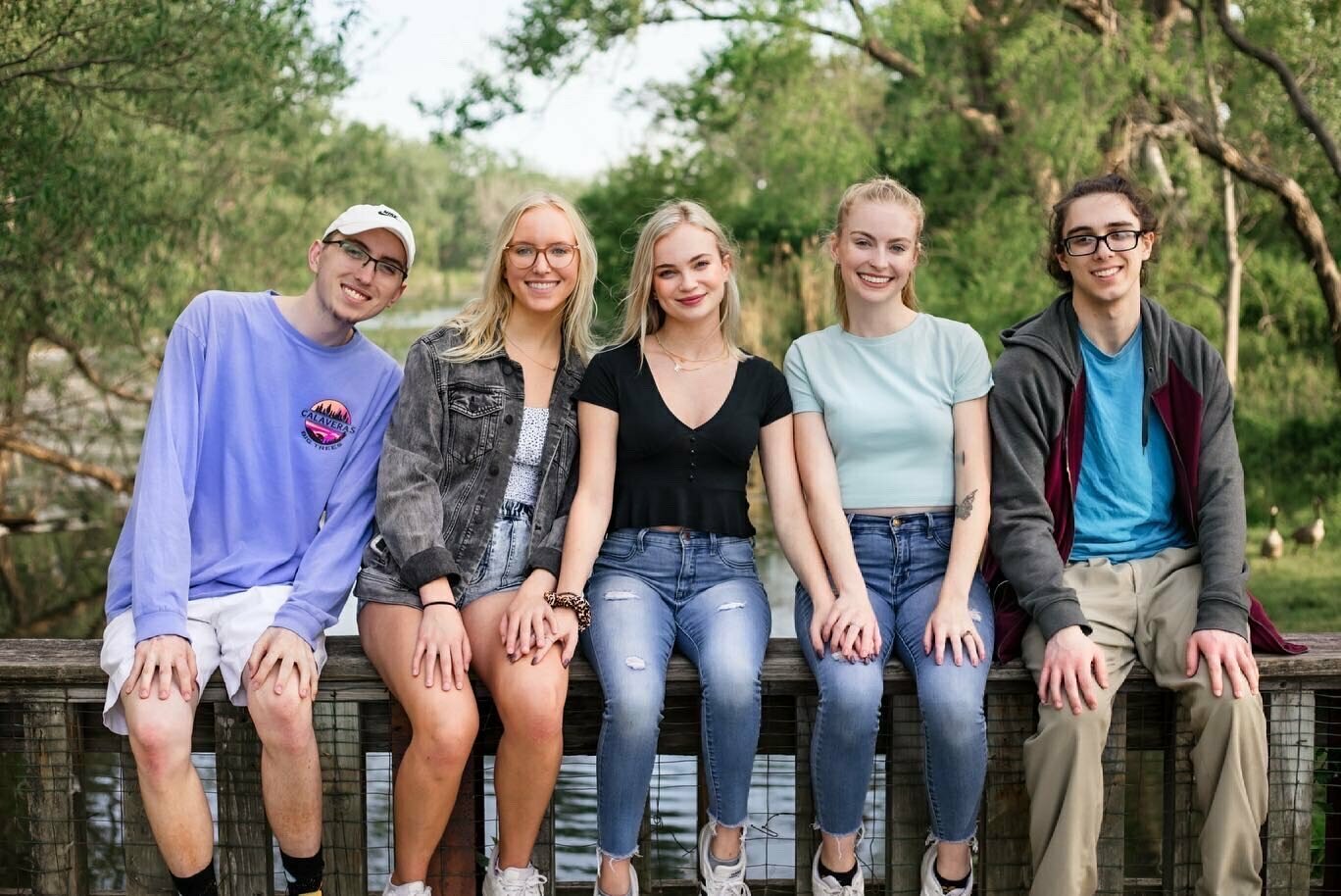
"I found out in 2019 that my family dynamic is more crazy than it already was. From first finding out about being donor conceived, to finding out about potential half siblings, to verifying through records kept and DNA testing, to now, my circle has only grown bigger and bigger. I am so grateful for the siblings I’ve had since day 1, the ones I’ve found along the way, and the ones waiting for us to find them."
The following success stories, quotes, and photos represent some of the many donor offspring connections that have taken place after connecting on the DSR.
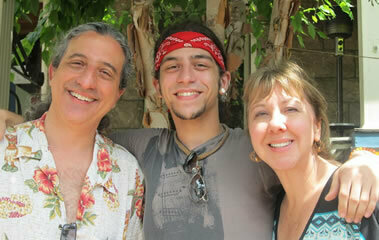
The second Donor Sibling Registry member (after Wendy Kramer) waited for 12 years to connect with her son's donor, who finally found them on the DSR. Here is Jennifer, her son Nate, and Nate's biological father Cliff.

Siblings!

Four (adorable) siblings from different households went to summer camp together in 2021. A couple of these sisters met as babies, two met at camp for the first time, and the youngest met the rest at various times as a toddler.

Experiences of Donor Offspring

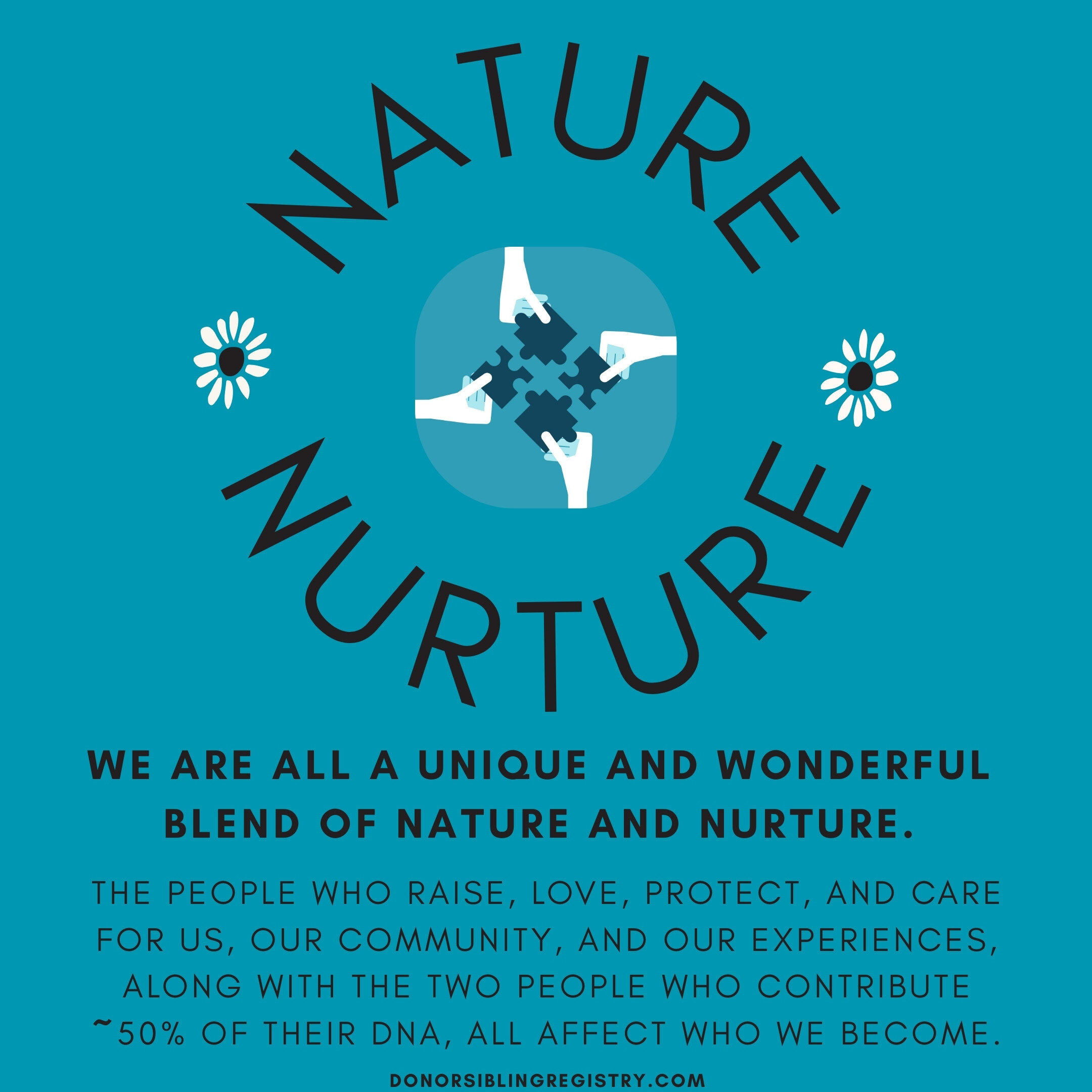
From the blog post Zero-Sum Thinking and Donor Family: "Acknowledging a donor-conceived person's biological mother or father doesn't take away from the non-bio mother or father that raised them. Too many parents (and sometimes offspring) are afraid that if they connect with, acknowledge the importance of knowing, or even call a 'donor' a genetic/biological mother/father/parent, it will somehow diminish the importance of the non-bio parent. When donor-conceived people have the opportunity to incorporate previously unknown genetic relatives into their lives (e.g., biological parents, biological grandparents, or half-siblings), it in no way takes away from the family that raises and loves them. When egg and sperm donors connect with children that were born from their donations, it in no way threatens the integrity of their existing family. One doesn't threaten, diminish, replace, or negate the other."

Watch the Donor Sibling Registry's 6-part MTV docuseries, Generation Cryo. Follow Bree's journey to meet her 15 half-siblings and search for their biological father.
(Much of the series can be watched right from our members-only Video Library page.)
2020: Carissa's Story: "After a year knowing the TRUTH I am ready to share this information. I am not afraid to talk about it and I am not ashamed. This post is still NOT EASY to write though, as it puts me in a super vulnerable place. I have pondered this many times. How would I share this information? How would people interpret it? Would they tell me to be thankful for what I had or would they be upset? Would they not understand? (Which honestly MOST do not unless they have walked this same path.) I will try my best NOT to have any expectations for this post and hope that I will receive love, understanding, grace, and support. I am putting myself out there but this is WHO I AM and I should not have to HIDE IT anymore as my parents did to me. This will be long so if you're at all interested please bear with me.
My parents were divorced when I was 2 (born in Alaska). My mom married my step-father and he raised me most of my life. I still always had a longing all my life to be more like my Father. I questioned our similarities, qualities, and even asked his blood type, but little to no avail — answers were scarce and far from in between. He had other children. I questioned that and wanted to find my siblings, however there was again little conversation about it. I asked about my health and his family's health ... again little to no answers, but I always knew he was my Dad deep down inside.
My dad passed away over 2 years ago and I longed to find my siblings. So, I took an Ancestry test of course. ;) I knew right away I probably would not know all the people as there are so many that show up: 1st, 2nd, 3rd cousins, etc. Six long weeks later my test came back and it was VERY STRANGE, to say the least. I did not know almost any of my top matches. I never really knew any of my dad's side of the family so I figured I wouldn't know their names but I wasn't seeing any with my dad's last name come up. It was so weird. I did see some relatives on my mom's side though. However, within hours some of my top matches were private messaging me that they knew who I was but didn't know if I knew. MOMENT OF FREAK OUT AND PANIC!!! I thought it was a scam! Who are all these people I have never met but they were so closely related to me? I had to know more! I went back and looked at my dad's pictures to compare and kept asking, "Mike, don't I look like my Dad?" and he kept saying, "Yes you do" — but there were some things that didn't match. Very shortly after I found out the TRUTH of my IDENTITY. Something that would SHOCK me and turn my world completely upside down. Yes. I found out that I was donor-conceived.
Can you imagine living your entire life basically a lie of who your father was? Looking back I always knew something wasn't right. I am not going to blame my parents because they were told by the doctors to never tell; however, I still feel it was best to be HONEST. It would have truly shaped me in a different way. They are now saying tell your children AS EARLY AS POSSIBLE because of the psychological effects. Was it traumatic? You bet!!! Imagine looking in the mirror and trying to figure out who you are again? I was angry, hurt, traumatized, broken, lost, and it was a long grieving and healing process. Do I still believe my parents loved me? Absolutely. Did I still believe my parents believed they were doing the best for me? Yes, absolutely. However, this was not an easy walk. Now, I am choosing not to hide my IDENTITY of WHO I AM. I will not keep it a secret and follow the same path and be filled with shame. Just like when we know someone was adopted it is very similar in that way. We go through the same psychological factors as when someone doesn't find out they are adopted until later in life.
So here I am sharing my story. I came into a family of almost 20 siblings that we know of, and an Aunt who is lovingly involved in our lives. Unfortunately, the donor does not want involvement but he is a doctor and is healthy and in great shape (he competes in competitions). I have met 2 siblings so far in person. We have Skype meetings and yearly group meetups, although I am not quite ready for that yet. ;) I have finally found WHY I do what I do and can see qualities that I share with the other siblings. It has been a crazy journey but this is WHO I AM and where I came from. I hope you will be understanding with me opening up as well as be compassionate — and if you have a story to tell, please don't hold back. It could change someone's life."
A donor-conceived person (who found out via DNA testing that she was donor-conceived) shared what it was like to meet her half-brother and biological father for the first time: "They felt like family, and for me there was a sense of relief in that too. Like it's hard to put a finger on it but I think a good analogy would be like finding people who speak the same dialect as you. Like I've been trying to speak [my last name] all these years and it just never came naturally to me and it was always a struggle and I didn't know why. Then I find out it's because I was speaking [donor's last name] the whole time and discovered that talking to them is so much easier and intuitive in a way I haven't experienced before."
2015: Letter from a 10-year-old donor-conceived child to sperm bank
2014: Video of a 4-year-old girl explaining her donor conception
2013: Letter from 9-year-old Sebastien to President Obama, asking for a legal end to donor anonymity
John's story: A 53-year-old donor-conceived man tells his story of finding out that he is donor-conceived later in life: "My initial reaction was one of exhilaration — finally everything made sense. My second reaction was that nothing made sense — the bottom was dropping out of my life."
Susan Kane's letter: An excerpt of an open letter to the ASRM from Susan Kane, a donor-conceived person, who also has 2 donor-conceived children. Susan's letter was in response to Todd Essing's commentary (2011: Forbes: Balancing the Rights of Donor Offspring With Those of Donors: But What About Parents?), which was a response to Naomi Cahn and Wendy Kramer's commentary (2011: BioNews: The Birth of Donor Offspring Rights in the USA?).
"As anyone in the mental health field should know, decades and decades of adoption research has taught us that secrecy in families causes damage. It has taught us that learning that your parents are not your parents late in life wreaks havoc on your basic sense of trust. Most of all, adoption has taught us that genes matter.
They don't matter more than love. I never said they did. But I challenge you to find an adoption professional in North America today who would tell you that genetics is irrelevant in family creation. Genes matter — today more than ever. Genes matter to donor families. These families have specifically pursued infertility treatment rather than adoption. The fertility industry *exists* because genes matter. Allowing people to pass on their genetic material is what fertility treatment *does*. It amazes me that genes can matter to the families and doctors you serve and yet both you and Allison Rosen can't believe that they also matter to *me*."
(It's worth reading Susan's entire letter!)
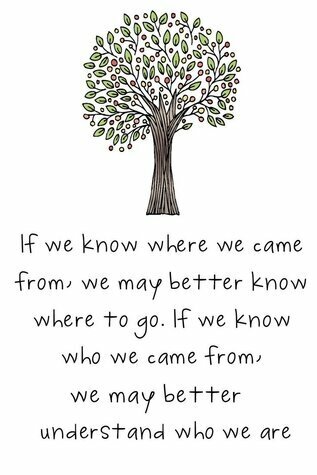
Tips for Donor-Conceived Adults

The following tips are for donor-conceived adults who just learned the truth of their conception. We also have tips for parents of donor-conceived adults; see the DSR Counseling page for those tips.
8 Tips for Donor-Conceived Adults Who Just Found Out
These tips are for donor-conceived adults who just found out, either because their parents finally told them or because they discovered the truth on their own. Also available as a downloadable PDF.

Take some deep breaths, and try to relax. Many people have walked this path before you, and although the road can get a bit bumpy for a little while, they have all survived. Secrecy implies shame, and you have nothing to be ashamed of, so do not let the “secret” persist. Set aside time as soon as possible to discuss the situation with your parents. Talk with other close family members and friends who can provide good support.

Ask your parents why they used a donor and what the experience was like for them. Ask them why they kept the secret. Most parents don’t tell because they’re afraid of how the truth will affect the family. Often, the non-biological parent is afraid of being looked at as not the “real” parent. You can assure your non-bio mom or dad that this news changes nothing in your relationship. Your parents will always be your parents. This knowledge doesn’t change that fact or diminish your love for the parents who loved and raised you.

Tell your parents what you are feeling. You might be experiencing a wide variety of emotions, including anger, sadness, confusion, or even relief. Understand and explain that your feelings are valid and to be expected — and that working through these emotions might take some time. Have patience with yourself. If you’re upset, don’t feel guilty. This was your information to have, and it was kept from you.

Your parents may have made the best decisions they could with the information they had at the time. Many parents were advised to lie to everyone, including their children. Find out what they know about the donor or any half-siblings. Gathering information about the other half of your genetic identity and relatives may help you better understand yourself. Many offspring report feeling a sense of relief as they reassemble the puzzle of their physical, emotional, & intellectual selves.

You may never fully understand or agree with your parents’ reasons for keeping this information from you. However, staying angry doesn’t help you move forward. Empathy and compassion will be extremely helpful in repairing any damaged relationships. Work through your emotions, with the help of a therapist if necessary. Understand that forgiveness is the only path to true healing. It’s important for your parents to know that you can forgive them for not telling you the truth, even if this might take some time.

This is not a one-time conversation. Let your parents know that you will ask them to continue the conversation as you process this new information, tell family and friends, and incorporate it into your identity. Invite your parents to walk beside you as you explore your genetic roots and figure out what it means to you and your life to be donor-conceived. There is great opportunity for a stronger family bond if you can keep the lines of communication open. Let your parents love and support you.

Feel good about the fact that your family will now have a basis in truth. Understand that any curiosities you have about your half-siblings and/or your unknown biological parent, your ancestry, and your medical history are normal and to be expected. It’s an innate human desire to want to know where we come from. You can’t change the past, but you can control how you move forward. This is your story to own and share as you see fit.

If you do desire to know more about your donor family, give yourself permission to search for the information and the genetic relatives you’re curious about. Your curiosity is not a betrayal to your parents, particularly your non-biological parent, in any way. Adding new family members or ancestral information doesn’t take away from or diminish the importance of your family of origin. Let your parents know how important it is for you to have their support as you look to discover more about your ancestry, your medical background, and your genetic relatives. Join the Donor Sibling Registry for connection and support.
10 Tips for Contacting a Donor for the First Time
Contacting your donor for the first time can be an exciting yet scary experience. You might be nervous about making a good first impression, or you might be worried about scaring them away.
Here’s some advice for contacting your donor for the first time:

This can be a scary situation for donors who haven’t yet been contacted, or who haven’t told their families they donated, or who have family members who are against contact. You want to get your foot in the door as gently as possible.

It can be very important for the donor to know they’re in control of the situation.

You just want to give them the opportunity to know you. This should be an invitation, not a demand.

For starters, explain the importance of knowing about your ancestry and medical background.

A friendship? A more familial relationship? Tell them why you think this connection could be fulfilling for both of you.

Tell them about you (or your kids); it’s helpful to make yourself more than just an idea — an actual human being, and one to be proud of.

Again, this appeals to the donor’s emotions. Seeing similarities with the children they helped to create can be profound for a donor who wasn’t sure about contact.

It’s likely because of their family situation, their lack of emotional bandwidth, or a lack of understanding about what connecting might mean for them and their family. Their hesitation might also be about their own health issues, fear of not being “good enough,” etc.

Sometimes a donor needs some time to work things out with their family members. If you get no reply, try again in a few weeks/months. If they say no, let them know you’re always available if they change their mind. Give them space to hopefully work it out and come around.

Consider sharing that news in upcoming correspondence.
Research on Donor Offspring

"Being an only child my whole life and knowing there might be some siblings out there was always in the back of my mind, but I never knew there was a chance to connect with anyone from my father's side of the DNA strand. Now that I have, it's a lot like having siblings without the sharing the bathroom and clothes aspect of actually living with them, and I love it. I talk to at least one sibling every day; there's just too many to talk to all of them every day. It's a good thing. I thought it was cool to meet and have more sisters. My mom didn't want more than two kids all by herself so this was her way of giving us more. It's sooo cool!"
"Don't be nervous; we're not trying to replace you, we're trying to find us."
"I don't think that children could forget about or have a lesser opinion of their parents after meeting their donor. Kids know that the people who are important in their lives are the people who have always loved them. I think that knowing a donor can only add to the number of loving adults in a child's life. The donor will never substitute anyone. I feel that by meeting my donor that I have added to the wonderful family that I already have. And the parents will always be there to support the child if meeting the donor was disappointing in some way."
"There's nothing to be afraid of! Just because your child has expressed interest in discovering more about themselves doesn't mean they'll love you any less. In fact they will most likely be very grateful to you for supporting them in this desire."

"Not having a father, especially as a boy, was tough at times. I definitely feel like I could have benefited from having a father figure and would have liked one, but I had the benefit of Big Brothers which helped."
"I've been curious as to what it would be like to have a father, but I do not feel like I have missed anything."
"I was always envious of my friends who depended on their fathers. Though I didn't have a father, I think my relationship with my mom is stronger than others."
"My mom was married when I was conceived but was widowed before I was born. It's been a life journey to discover how to be a man on my own. From big things like how to handle masculinity, how to behave toward girls, and attitudes about life, to practical things like how to shave or tie a tie. I couldn't be happier with my life or who I am, but yes, it's taken a lot to come into my own as a man."
"When I was much younger, I was certainly confused about my nontraditional family. I was also just told that I 'just didn't have a dad' until about age 13 and was certainly curious, but I've never felt like there was something missing. Even after hearing from my donor and seeing his photo, I'm so obviously the product of solely my mother (internally and externally) that I've never needed to search for where some strange, inexplicable part of me came from. I have a far better relationship with my mom than many kids have with either parent, and I think much of that came from her being a single parent."
"Girls are supposed to be close with their fathers. I see fathers walking their daughters down the aisle, fathers threatening potential boyfriends, father-daughter bonding times, and I can't help but feel like I missed that."
"I have had four (female) parental figures since age eight, so I have always felt very supported and loved. There was a short period during my childhood when I wanted a father figure, but in general I have not felt something was missing."
"I feel all my needs are met by my two moms. I would just like to know more about him and his family and would like for him to know that I exist."

"Be open about it from day one with the child and it will just seem normal to them. I'm a strong, successful, happy, loving man with a beautiful life and beautiful family. This doesn't define who I am any more than my hair color does. I do think a healthy family life is important (whether donor-conceived or not) so that shouldn't be in doubt, but being donor-conceived isn't a problem at all. I personally believe that children are best raised by a mother and father, but I'm an example of a child of a single (widowed) mom. I've had some challenges because of that, but I'm still thriving and very happy. As far as I'm concerned, I have a family that loves me just the same as anyone else."
"Think about how this will affect your CHILD, not just you. You are making a choice for them. Try to have a father-figure or mother-figure for them to guide them or set an example of what their expectations of men and women should be. Come to terms with the fact that your kids may want to meet their donor one day and that you need to be supportive of their desire to do that. Otherwise, consider other possibilities for having children."
"Just be honest with your child from the get-go. I've known my whole life and though it's been painful at times it has never been a really big issue for me. In fact, I frequently 'forget' for weeks or months."
"I think it would be good for those considering donors to be able to talk to children who were conceived via sperm/egg donation and get their opinion on it. They may say they love their parents but they all admit when they meet their biological parents, they feel complete."
"The matter of using a donor for conception goes much deeper than a matter of conceiving and genetics. People carry a great deal of meaning from their origins, family, and genetics, even though it may not seem logical to you when you want a child so badly. If you do plan to use a donor, please raise that child with honesty about their origins. Finding out as an adult is very painful and difficult; however, knowing your origins is a matter of dignity and should be available to all."
"I would say please, please, please be honest with your child about their origins from day 1. It is the right and best thing to do. My parents never told anybody that they'd used a sperm donor but the truth still came out eventually. I can't tell you how big a shock it was to discover at the age of 25 that the man I think of as my dad isn't my biological father."
"I would tell them if it is at all possible to please use a known or willing to be known donor. I wish so much that I could meet and know my biodad, or at least have a photo of him."
"I would advise them not to hesitate to use donor conception, and that a family can be just like any other. I would advise them to be open with their child about their origins from a very early age — so early that they have no memory of being told and it is just a simple fact of life. I would encourage them to communicate to their children how special and wanted they are. I would also suggest that they have at least minimal medical, family, and ancestry information in case the child wanted it in the future. Photographs would also be nice. I would encourage them not to be threatened or worried about providing information to the child as they get older. They should understand that not everyone wants a relationship with biologic parents, but that information about one's origins is essential to identity."
2014: Survey responses from 305 donor-conceived people, in response to the question "What would you like other people considering using donor gametes or donated embryos to know that you have learned?"
Interesting Facts

The average age of all offspring currently listed in DSR posts: 15.1
The average age of offspring when they are first posted to the DSR: 13.1.
Number of children posted per DSR family:
75% of families have one child posted,
21% have two children posted,
3.5% have three children posted,
0.5% have four children posted,
and around 0.1% have more than four children posted.
8/22/2024 Ages of offspring posted on the DSR:
Under 10: 6,393
10-19: 11,537
20-29: 9,908
30-39: 3,220
40-49: 1,350
50-59: 243
60-69: 132
70-81:52
For more interesting facts about DSR offspring, see the DSR's Our Members page.


 Browse by Clinic
Browse by Clinic
 Become a Member
Become a Member

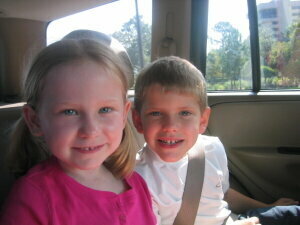
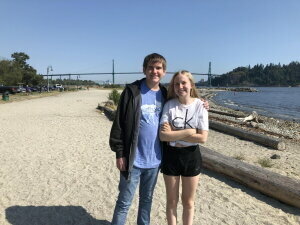
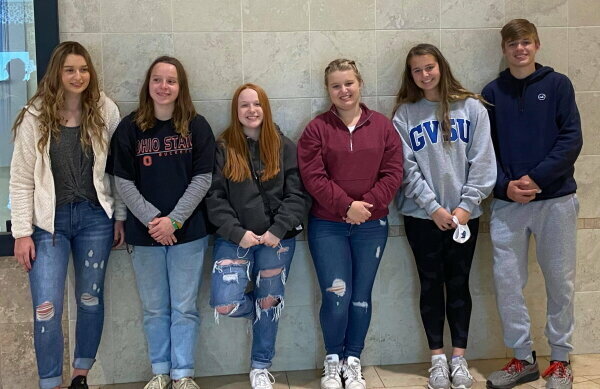
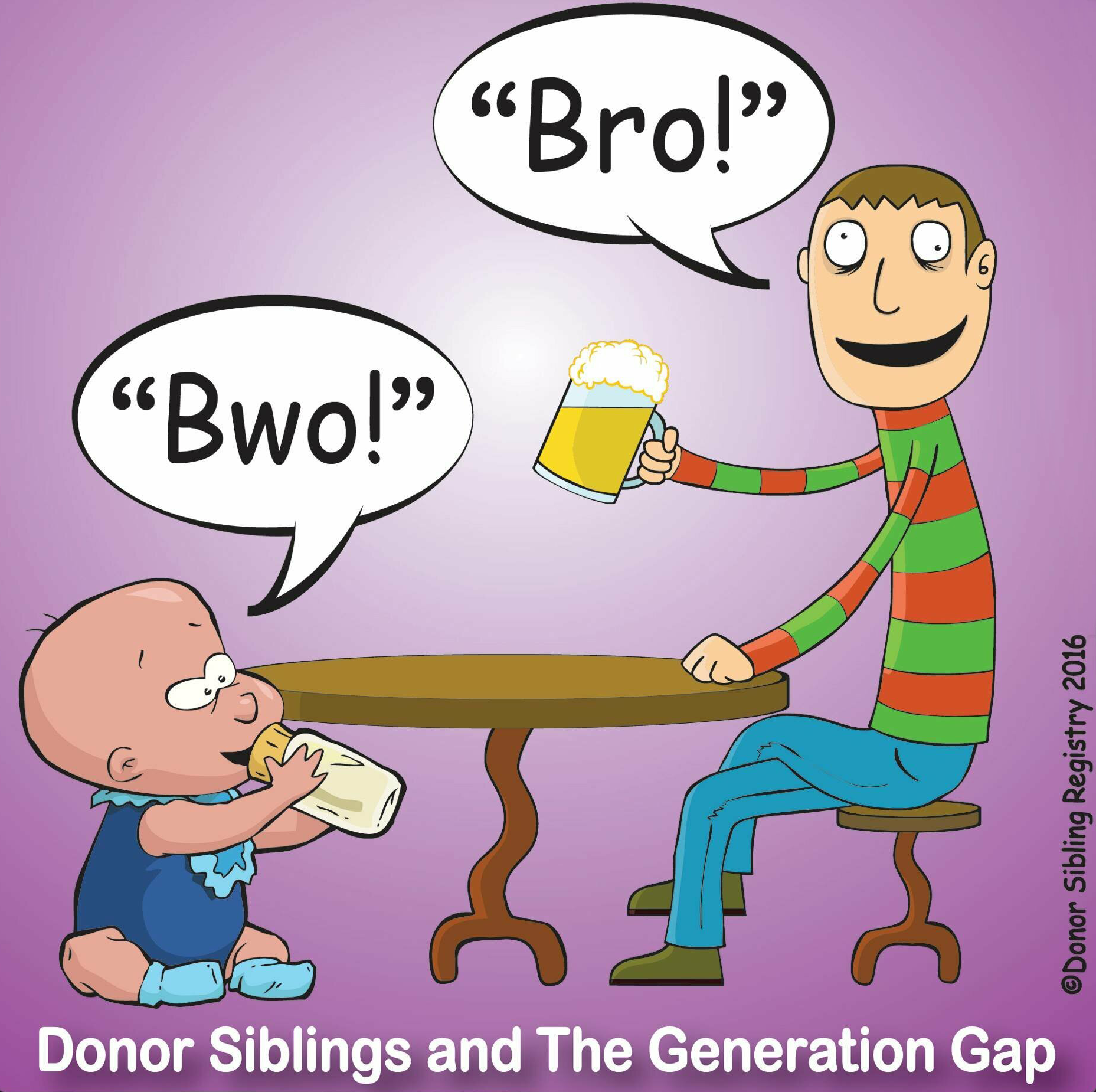
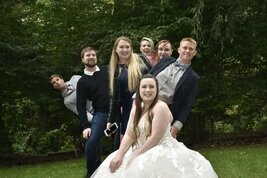
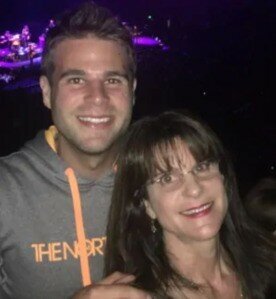
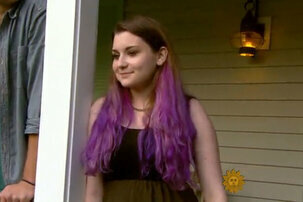
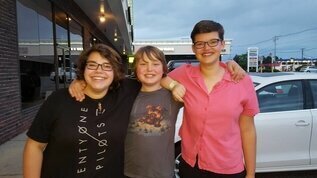
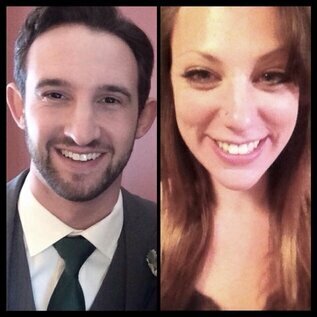
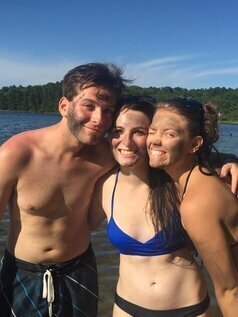
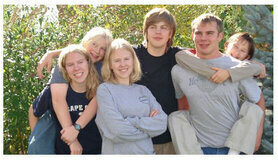



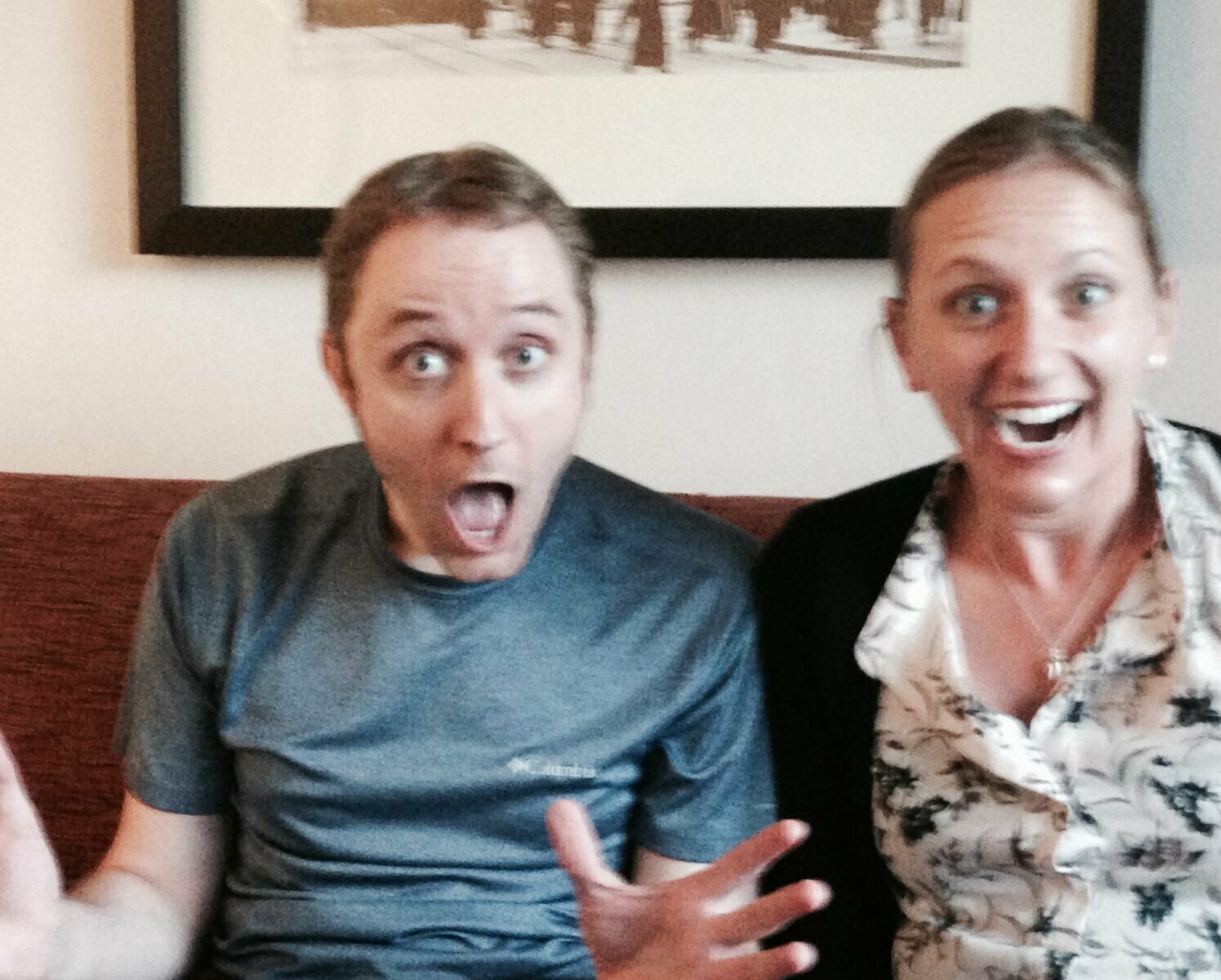
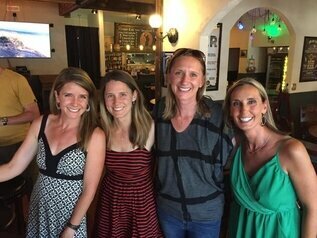

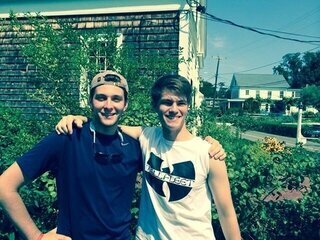
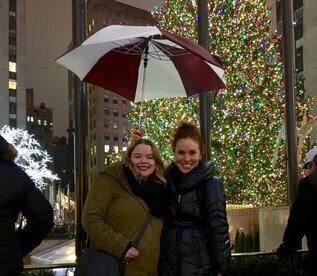
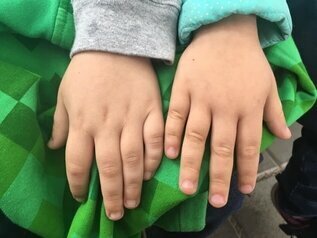

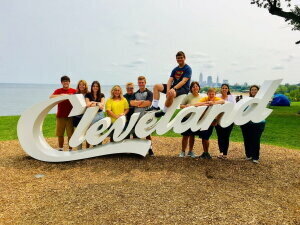
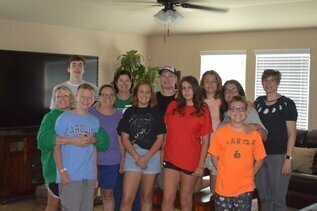

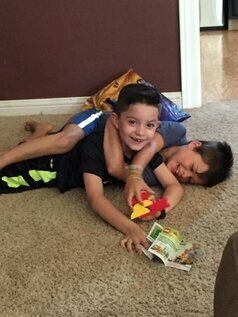
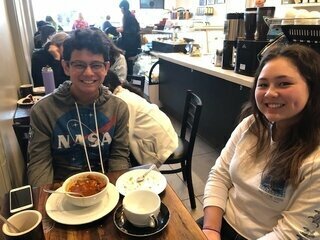
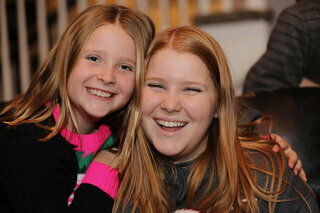
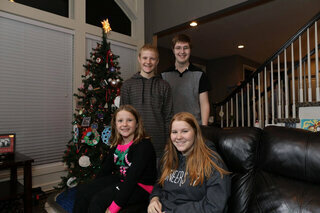
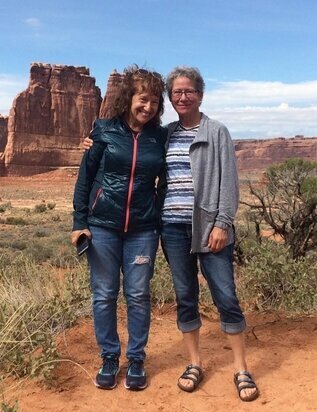

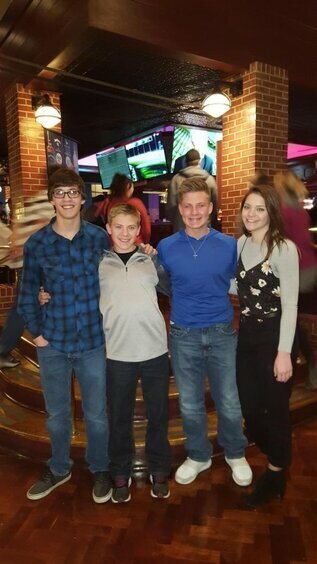
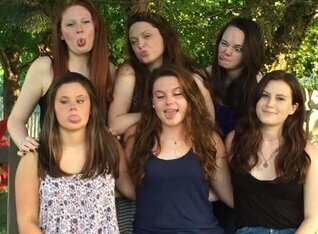
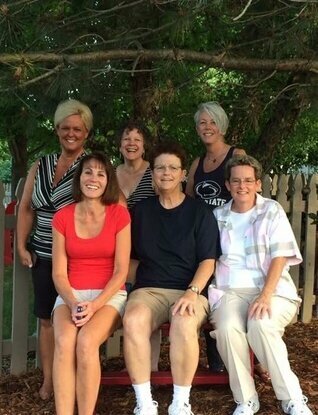




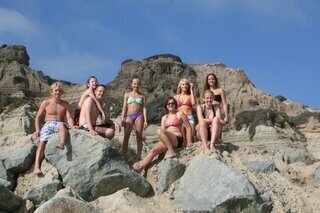


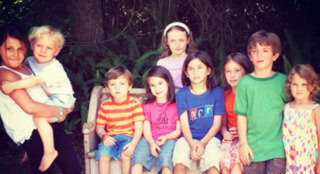


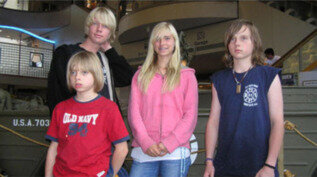
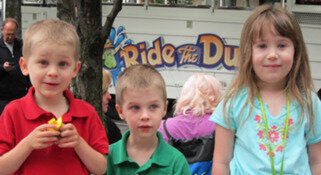
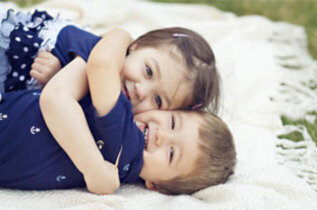

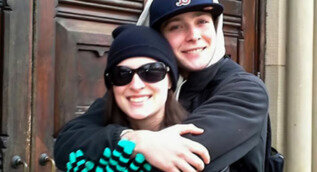
A donor-conceived girl turned 18 and made a profound statement with a new tattoo. The connection is much more than just a "donated cell"!
"My son was on the DSR 9 years before his donor sister signed up, so hang in there; it can happen anytime. He did not feel like he was missing anything before they connected, but he sure feels like he...
"Since joining this site I have found two siblings. We have since shared a number of e-mails and have gotten to know each other more. It's amazing how much we discovered we have in common and look alike."
Today I found my younger half-brother and am absolutely thrilled! I contacted his mother and hopefully we can start a correspondence and maybe even a relationship. I am so happy that DSR has enabled me to find my 'other family'!...
"I am 13 years old and in 8th grade. My name is Lauren and I am also a twin. I found out about a month ago now that my dad wasn't my real biological dad. I was shocked at first...
"I am 13 years old and in 8th grade. My name is Lauren and I am also a twin. I found out about a month ago now that my dad wasn't my real biological dad. I was shocked at first...
"When I signed up with the DSR a year ago, I did it more with the hopes of finding information about my donor, than with any thoughts of actually finding a sibling. After all, I'd be conceived in the late...
When I was an early teen, I had this fantasy that I had a secret identity, which would eventually be revealed to me later. I've never admitted this to anyone until now. It wasn't a grandiose secret identity — just...
Genetic uncertainty has clouded my life since I was twelve years old, when I learned that my conception was facilitated by an anonymous sperm donor and artificial insemination. Though the shock dissolved in the following months, I’m reminded of this...
So, since I'm being prompted to remark on my thoughts on National Siblings Day, here's this from a sibling-without-her-siblings: I'm currently drinking tea out of my Sisters By Heart mug that my best friend gave me a number of years...
I was conceived by a donor egg in 1988. My mom says she does not remember any of the basic information about the egg donor (ethnicity, medical history, etc). I have called the clinic where I was conceived multiple times,...
Just imagine being 20 something and finding siblings on your own when DNA testing is even more wildly popular, or they find you. You then develop some kind of relationship. You find that many of these siblings had parents who...
A family that is lying to a child about parentage is, by definition, not stable. The truth is always out there, only one internet search or blood test away from being exposed. Like adultery, like the closet, this lie is...